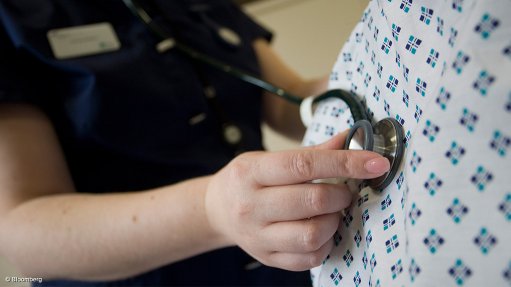
Photo by: Bloomberg
The health system in South Africa has since last November received a face-lift, as government launched Operation Phakisa Ideal Clinic Realisation and Maintenance.
President Jacob Zuma said building Ideal Clinics for the public is on track. So far, he said progress made in this Phakisa segment includes the implementation of the Central Chronic Medicine Dispensing and Distribution Programme.
“This is a medicine distribution programme for stable patients who do not need to see a doctor or a nurse, but are just coming to collect their monthly supply of medication,” said Zuma on Thursday.
He was providing an update on the implementation of the various segments of Operation Phakisa.
He said medicine supplies are delivered to stable patients at pick-up points agreed to by both government and patients, and as a result, at total of 210 840 patients who are stable and are on chronic medication no longer need to queue for repeat medication.
Construction underway
The President said the architectural designs for the Ideal Clinic have been finalised, which will be used in the building or refurbishment of Ideal Clinics.
“Using the same designs, 216 new clinics are going to be built. In eight clinics, contractors are already on site, in OR Tambo District in the Eastern Cape. In another eight, contractors are ready to go on site, for example five in Vhembe District in Limpopo and three in Thabo Mofutsanyane District in Free State.”
The President said this segment of Operation Phakisa seeks to transform all public sector clinics into Ideal Clinics, which provide good quality care to all communities.
According to the President, the Ideal Clinic is a health facility that possesses the following characteristics:
- It opens on time in the morning, according to its set operating hours, and does not close until the last patient has been assisted, even if this is beyond the normal closing hours.
- It is staffed by health care providers who treat people with dignity, and who observe the Batho Pele principles of Access; Consultation; Courtesy; Information; Service Standards; Openness and Transparency; Redress; and Value for Money.
- It will provide community-based health promotion and disease prevention programmes in collaboration with the community.
- It is clean, promotes hygiene and takes all precautionary measures to prevent the spread of diseases.
- It has reasonable waiting times. Community members do not have to sacrifice their entire working day to seek health care.
- It provides a comprehensive package of good quality health services every day, and community members do not have to return on different days for different services.
- It has the basic necessities available, such as essential medicines.
- It refers people to higher levels of care timeously when this is required.
- It works together with the community it serves, with diverse stakeholders, in promoting health and socio-economic development.
The Ideal Clinic work-streams have been looking at eight areas which are Service Delivery; Waiting Times; Human Resources; Infrastructure; Financial Management; Supply Chain Management; Scaling up and Sustainability; and Institutional Arrangements.
Measures to improve ART supply
He said one of the biggest complications arising from running the biggest Antiretroviral Treatment (ART) Programme in the world is the logistics of supplying medicines to all the clinics and hospitals.
He said sometimes some clinics will report a stock-out of medicines when in fact medicine warehouses are still full.
“This problem is being solved through special cellphone technology whereby nurses are able to use a specially supplied cellphone to scan the barcodes on the medicine bottles and packaging, and learn immediately if there is stock-out or not.
“This information is relayed electronically to the National, Provincial or District Office, for urgent and appropriate action. A total of 1 200 clinics in four provinces already provide this service, in Kwa-Zulu Natal, Limpopo, Eastern Cape and Gauteng. A plan is in place to roll out to the remaining five provinces,” the President said.
MomConnect
The President said a system called MomConnect is being implemented in South African clinics, whereby pregnant women are registered with the Department of Health via cellphones so as to receive messages appropriate to their term of pregnancy.
“455 126 mothers have been registered. 361 of them have lodged complaints while 2 015 have sent in compliments,” said Zuma.
He said the project shows that the building of the Ideal Clinic for the public is on track.